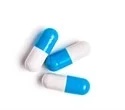
The fast-acting opioid antidote naloxone is currently being pushed for non-prescription availability in the United States. Although this drug has saved lives, it is less effective when used in combination with potent synthetic opioids like fentanyl. In an intriguing turn of events, scientists are now considering cannabidiol (CBD), a substance found in marijuana, as a potential substitute for the well-known antidote. Today, a team announces the development of CBD-based compounds that weaken the binding of fentanyl and enhance the actions of naloxone.
The researchers will present their findings at the American Chemical Society’s spring meeting (ACS). More than 10,000 presentations on a variety of research topics are included at the hybrid ACS Spring 2023 meeting, which runs from March 26 to 30.According to Michael VanNieuwenhze, Ph.D., the other co-principal investigator for the study, a new option might take one of two shapes.
In a perfect world, VanNieuwenhze says, “we would like to find a more potent substitute for naloxone.” Yet it would also be a success if something else could function in concert with it to lessen the dosage required to treat an overdose.
At the meeting, Jessica Gudorf, a graduate student in VanNieuwenhze’s group, will present the work. Researchers at Indiana University Bloomington are all present.
Opioids are a group of substances that are frequently sold illegally and are prescribed to relieve pain. The medications can be fatal if used in excess since they might impair breathing. More than half a million Americans, according to the U.S. Centers for Disease Control and Prevention.
Compared to other compounds in this class, such as heroin or morphine, fentanyl and its other synthetic relatives bind more tightly to opioid receptors in the brain. Naloxone reverses an overdose by competing with the drug molecules for the same binding sites on the receptors. But because fentanyl binds so readily, it has a leg up on naloxone, and growing evidence suggests that reversing these kinds of overdoses may require multiple doses of the antidote.






